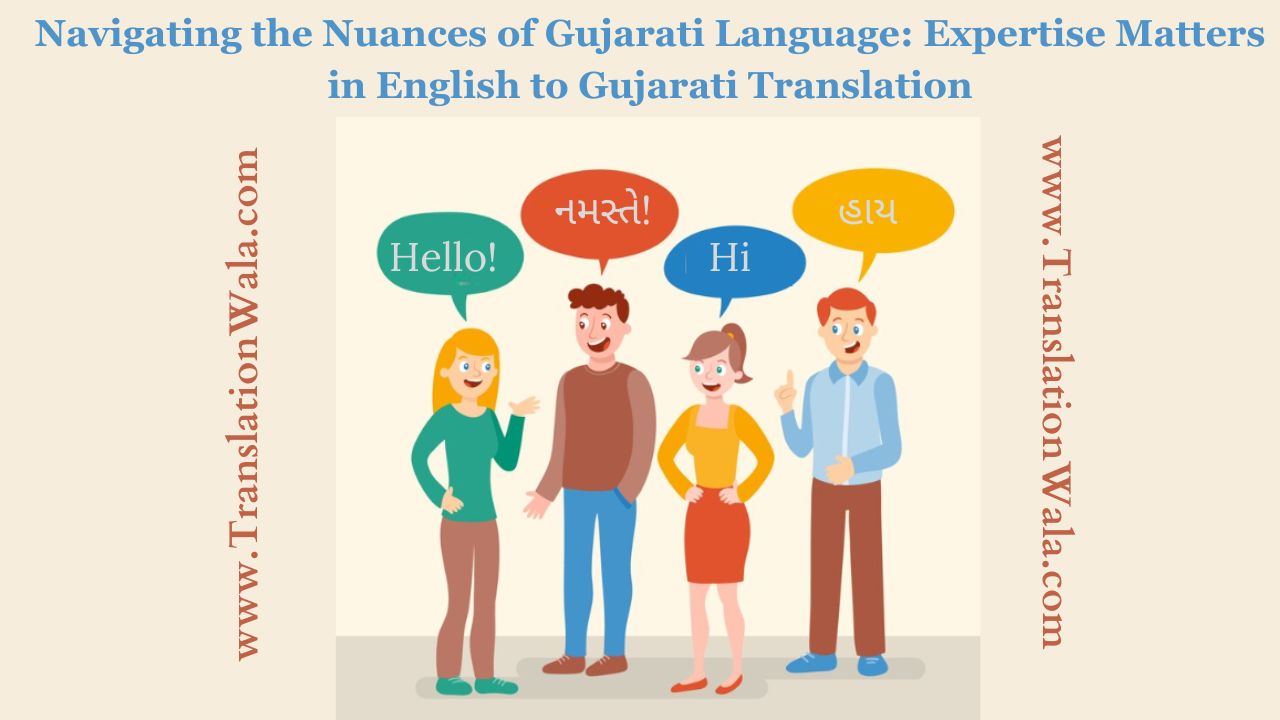More than 55 million people speak Gujarati around the world. It is more than just a bunch of words. It’s a fabric with lots of different ethnic threads, tricky language, and a unique beat that can throw off even the most experienced translators. So, English to Gujarati Translation takes more than just language skills. You need to know what the language means, how it sounds, and what culture it comes from.
Here’s why expertise reigns supreme in English to Gujarati translation:
Beyond the Literal: Decoding the Nuances of Meaning
Like many other Indian languages, Gujarati likes it when things aren’t clear. Words can mean more than one thing based on the tone and situation. “The mango is sweet” might seem like an easy line, but it can mean different things based on whether it’s true, a praise, or a joke. A skilled translator will not only understand these small differences, but will also include them in the Gujarati translation to make sure the message gets across correctly.
Treading the Tightrope of Grammar: Mastering the Quirks
At first look, Gujarati language seems simple, but its complicated verb conjugations, honorifics, and names that are specific to gender can throw you for a loop. A beginner translator might trip over these details, resulting in odd language and a possible misunderstanding of the meaning. But a professional will know how to handle these little grammatical details with ease, making sure the translated text runs easily and follows the rules of that language’s grammar.
Also Read: Breaking Barriers with Flawless English to Marathi Translation
Bridging the Cultural Gap: Sensitivity to Context Matters
Gujarati has a lot to do with Indian culture, and its words and phrases show Indian traditions, customs, and comedy. A translator who isn’t very good at what they do might miss jokes, slang, and references to cultural events, which could result in a dry and disrespectful version. An expert, on the other hand, will know a lot about Gujarati culture and will be able to find and change any references that are special to that culture. This will make sure that the translation is understood by the intended audience.
The Art of Wordplay: Preserving the Poetic Essence
Gujarati literature is known for its clever use of words, rhythmic writing, and artistic touches. Translating these works of literature takes more than just technical skill; you also need to enjoy the beauty of the language. A good translator will not only know what the words mean, but they will also be able to catch the flow, rhyme, and images that make Gujarati writing so interesting. They will try to capture the creative spirit of the original text in the target language, making sure that the translation stays true to what the author meant.
Also Read: Connecting Cultures: A Guide to English to Malayalam Translation
The Devil in the Details: Accuracy Reigns Supreme
Mistranslations, even ones that don’t seem important, can have big effects. A word that is in the wrong place, a verb that is conjugated incorrectly, or a phrase that is offensive to another culture can completely change the meaning. A professional translator will carefully check every fact to make sure that the translation is not only correct in grammar but also correct in terms of facts and culture.
In conclusion:
Hiring a professional English to Gujarati Translation isn’t just about getting the words right; it’s also about showing respect for the language’s beautiful history, cultural details, and artistic spirit. If you hire a professional, you can be sure that your message gets across to the right people, while still staying true to the original text and crossing the gap between English and Gujarati culture. Remember that knowledge is not just a nice to have in the world of translation; it’s a must.
